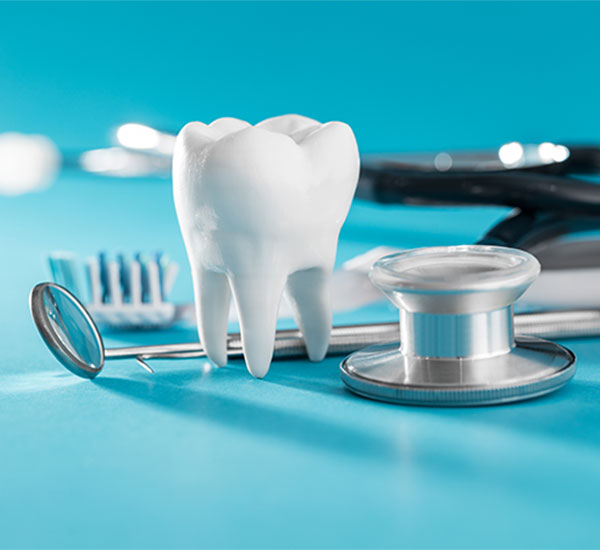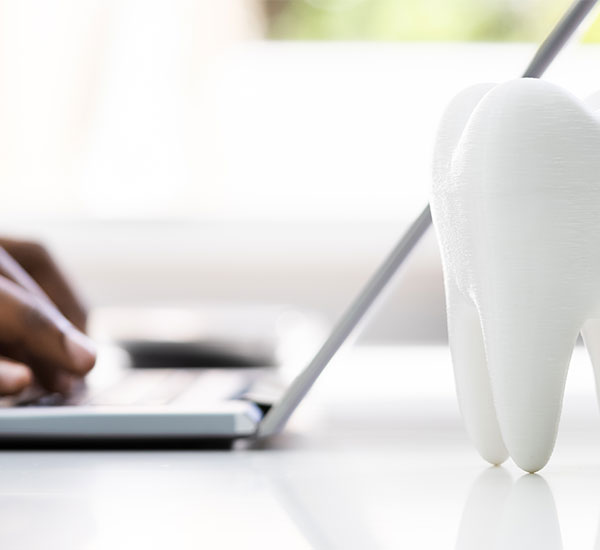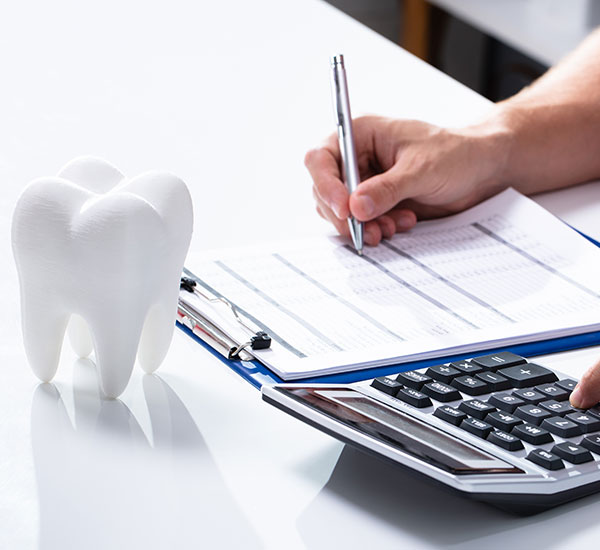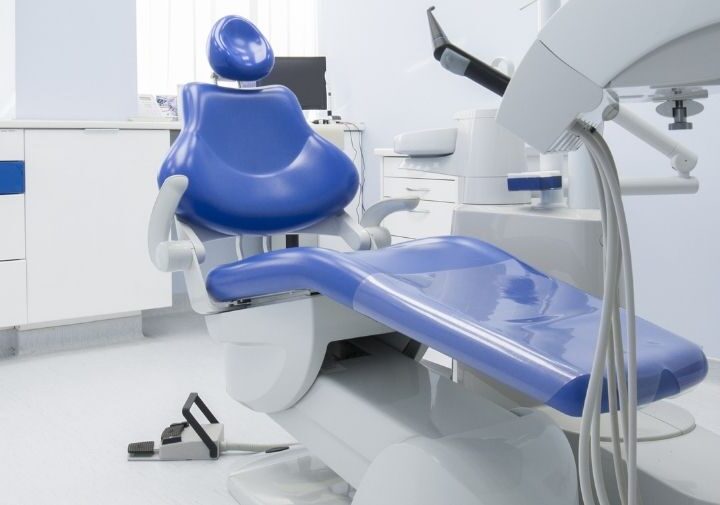


Dentists are bound by law to provide a reasonable standard of care for every one of their patients, and with good reason – when things do go wrong, they can have lasting and sometimes very painful consequences. If you’re currently dealing with pain, discomfort or other life-affecting consequences of a dental treatment, and you suspect that your dentist’s work fell below the expected standards, you may be entitled to compensation.
That’s where we can help here at Farleys Solicitors. With more than 60 years of experience behind us, we take care to provide friendly, practical legal advice that’s free from any unnecessary technical jargon. We’re passionate, knowledgeable and driven, and every action we take is done with your individual interests and welfare in mind.
Dental negligence is defined as any instance where a patient has endured avoidable or unnecessary pain, suffering or injury because a dental professional failed to provide adequate care.
It’s not strictly limited to physical pain; you can also make a claim if dental negligence has harmed your wellbeing, or caused you financial loss. This might be through direct action on behalf of your dentist – a mishandled or poorly-performed procedure, for example – or inaction, such as unnecessary delays to your treatment.
Dental negligence is rare, but when it does happen, the consequences can be severe. You may have difficulty eating, sleeping, or require time off work to deal with the pain or discomfort, especially if the negligence in question has exacerbated an existing issue. Issues with your oral health can also sometimes affect your wider general health, which may lead to an adverse effect on your mental health.

When you approach your dentist for dental advice or treatment, you are by definition entrusting them with your health and wellbeing. If they breach this duty of care, through direct action or inaction, they can end up causing you severe pain and stress, especially if careless treatment makes your original problem worse.
The effects of dental negligence can often have a major impact on your quality of life, and this impact could be long-term or even permanent. And while making a dental negligence claim might seem daunting, it can make a real difference. Compensation can help give you the financial support you need for your recovery, especially if you’ve been forced to expend additional amounts for remedial treatment, or if you’ve had to take time off work.

We understand that the thought of pursuing a claim may be daunting, especially if you’re dealing with the added stress of physical pain or related mental and emotional struggles. That’s why our specialist dental negligence solicitors focus on making the entire process as simple, straightforward and stress-free for you as possible.
Whether you’re ready to start your claim today, or you just need a few words of advice on what to do next, feel free to give us a call on 0333 331 4602
As with all of our services, we take care to maintain a friendly and jargon-free approach, so when you get in touch with us we’ll always start by discussing the details of what happened, and the specifics of your current situation. This allows us to quickly establish whether you have grounds for a dental malpractice or dental injury claim.
If we think you have a solid case, we won’t pressure you to immediately go ahead with legal action – it’s all up to you.
If you decide to proceed, we’ll then arrange for you to meet with one of our specialist medical negligence solicitors, who’ll sit down with you to explain the next steps.

If you believe that your dentist acted negligently in a way that’s caused harm to your physical health or overall wellbeing (especially if it’s in accordance with the issues we’ve listed above), you’ll be able to make a claim against them. Dentist malpractice claims can be made against general dental practitioners, or specialists such as orthodontists and endodontists.
If your dentist is a private provider, you’ll be able to bring a claim against them directly. If the negligence happened in an NHS facility on the other hand, you will be bringing your claim against the NHS trust. Feel free to get in touch with our dental negligence claims solicitors, and we’ll work with you to establish your eligibility for a claim. However, make sure not to wait too long, as you must make your claim within a set timeframe after the incident occurred.

You will need to make a dentist malpractice claim within three years from the date that the negligence occurred, or the date that you first became aware of harm to your health or wellbeing. After those three years have passed, you generally will not be able to bring a claim, although there are very select exceptions to this rule.

Wherever possible, we will undertake cases on a no win no fee basis here at Farleys Solicitors. This is sometimes known as a conditional fee agreement. Basically, it means that you don’t need to pay anything up-front, and there’s nothing to pay if your claim is unsuccessful. If your claim is successful, then the other party will pay your legal costs as part of your claim. We’ll explain in more detail about our fees at the outset, so that you have all the key information that you need about whether to proceed with your case.
To make a no win no fee claim, you’ll first need to have a suitable insurance policy in place. We can go through this with you in more detail before we begin.


Wherever possible, Farleys will pursue your claim on a ‘no win no fee’ basis. For free initial advice on pursuing a dental negligence compensation claim, please do not hesitate to contact us on 01254606008 or email us today to arrange an appointment.
Contact Us
Our client, Mr C*, approached Farleys’ dental negligence team about the possibility of making a claim for substandard treatment from his d...
There are many different types of dental negligence claims, many of which overlap with each other, so the list we’ve provided here isn’t exhaustive.
Generally though, if you’re suffering from prolonged pain or harm to your wellbeing due to one or more of the following, you may be able to claim compensation.
If a procedure is carried out without the right preparation, specialised equipment, or appropriate level of care, it can have serious consequences. Some of the most common dental negligence cases we deal with involve procedures such as:
Dentist malpractice can often result in particularly intense or long-term pain (and in the most severe of cases, possibly even both). You may choose to bring a dental injury claim based on:
Like any medical professional, dentists have a responsibility to provide you with a prompt and efficient diagnosis, so that the appropriate treatment can be prescribed. Failures at the diagnosis stage could mean that you end up getting the wrong treatment, which could do you active harm. Diagnosis failures can take the form of:
Dentists are legally required to obtain informed consent from their patient before initiating any treatment. ‘Informed’ is the operative word here – dentists must be proactive in ensuring that patients fully understand the risks and benefits before proceeding. Informed consent issues can arise from the following:
How Long Does A Dental Negligence Claim Take?
Dental malpractice claims can be a relatively lengthy process, taking anywhere from a few months to a few years to settle. The timeframe can be affected by a number of key factors, especially the severity and complexity of your injury or issue, and whether or not the dentist in question actually accepts responsibility. The expertise and experience of our dental negligence claims solicitors means that we’re able to settle most claims relatively quickly here at Farleys, but with bigger or more complex claims, it can often take a bit longer.
How To Prove Dental Negligence
In order for your dental malpractice claim to be successful, you must be able to prove that a breach of duty occurred, and that avoidable harm followed as a direct result. It can be difficult to prove this alone, so your dental negligence solicitor will gather most of the evidence. This includes:
However, there are a few things that you can collect yourself to support your case, including:
The more solid evidence that we are able to collect, the more likely it is for your claim to succeed.
How Much Can I Claim For Dental Negligence?
The amount of compensation you might receive depends on a wide range of variable factors, including the severity and complexity of your case. Because of this, it’s very difficult to give you an idea of what sort of compensation you can expect without having a more in-depth personal discussion with you about your situation.
When putting together your claim, our dental negligence claims solicitors will take a number of considerations into account, including:
We know that compensation alone cannot unilaterally negate the stress or pain you’ve endured as a result of your injury, but it can make life easier, and give you more freedom to focus on your recovery.
When Does Dental Treatment Become A Medical Negligence Claim?
If your dentist has made an error in your treatment that’s been serious enough to result in an injury or illness (whether that’s a new issue or the exacerbation of an existing one), then you may have a claim for dental negligence compensation.
Do I Have A Claim For Dental Negligence?
Dental negligence can occur during diagnosis just as easily as it can occur during the course of an actual procedure. If you’ve suffered illness or injury as a result of any of the following, you may be able to claim compensation:
What Can I Claim For If I've Suffered Dental Negligence?
If you’re dealing with pain or other consequences of medical negligence, you can claim compensation for the following:





We truly value and appreciate the feedback we receive from our clients, as we look to improve the services we offer on an ongoing basis




